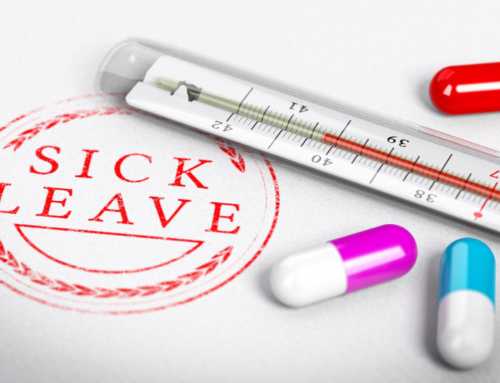Employees only need a fit note from a doctor after 7 days off work sick. If they are ill just before or during their holiday, they can take it as sick leave instead.
Fit notes and proof of sickness
Employees must give their employer a doctor’s ‘fit note’ (sometimes called a ‘sick note’) if they’re off sick for more than 7 days in a row (including non-working days).
Hospital doctors or GPs can provide a fit note. They may charge a fee if the note is asked for before the 7th day.
The fit note will say the employee is either ‘not fit for work’ or ‘may be fit for work’.
If it says the employee ‘may be fit for work’, employers should discuss any changes that might help the employee return to work (eg different hours or tasks). The employee must be treated as ‘not fit for work’ if there’s no agreement on these changes.
Employers can take a copy of the fit note. The employee should keep the original.
[hr height=”30″ style=”default” line=”default” themecolor=”1″]
Self-certification
Employers can also ask employees to fill in a form when they return to work to confirm they’ve been off sick for up to 7 days. This is called ‘self-certification’. Employers usually provide their own version of this form.
Sick leave and holiday
Statutory holiday entitlement is built up (accrued) while an employee is off work sick (no matter how long they’re off).
Any statutory holiday entitlement that isn’t used because of illness can be carried over into the next leave year. If an employee is ill just before or during their holiday, they can take it as sick leave instead.
An employee can ask to take their paid holiday for the time they’re off work sick. They might do this if they don’t qualify for sick pay, for example. Any rules relating to sick leave will still apply.
Employers can’t force employees to take annual leave when they’re eligible for sick leave.
[hr height=”30″ style=”default” line=”default” themecolor=”1″]
Pay
When an employee changes their holiday to sick leave they’re paid Statutory Sick Pay which will count towards the amount of holiday pay they’ve received. The exceptions to this rule are:
- they don’t qualify for Statutory Sick Pay
- they were off work sick and being paid ‘occupational sick pay’
[hr height=”30″ style=”default” line=”default” themecolor=”1″]
Returning to work
Employers should make changes to an employee’s working conditions if they become disabled because of their sickness. These changes are known as ‘reasonable adjustments’ and could include working shorter hours or adapting equipment employees use at work.
[hr height=”30″ style=”default” line=”default” themecolor=”1″]
Long-term sickness
Employees who are off work sick for more than 4 weeks may be considered long-term sick. A long-term sick employee is still entitled to annual leave.
[hr height=”30″ style=”default” line=”default” themecolor=”1″]
Help returning to work
Long-term sick employees can ask their employer or GP to refer them to Fit for Work for:
- health and work advice
- a fitness for work assessment
Employees can agree to a return to work plan. This may include a timetable for returning to work, if appropriate.
Employers can accept the return to work plan as proof of sickness in the same way as a GP fit note – the employee doesn’t need to keep returning to their GP for a fit note.
Dismissing a long-term sick employee
As a last resort, employers can dismiss an employee who is long-term sick, but before they can do this employers must:
- consider if an employee can return to work – eg working flexibly or part-time, doing different or less stressful work (with training if necessary)
- consult with employees about when they could return to work and if their health will improve





Leave A Comment
You must be logged in to post a comment.